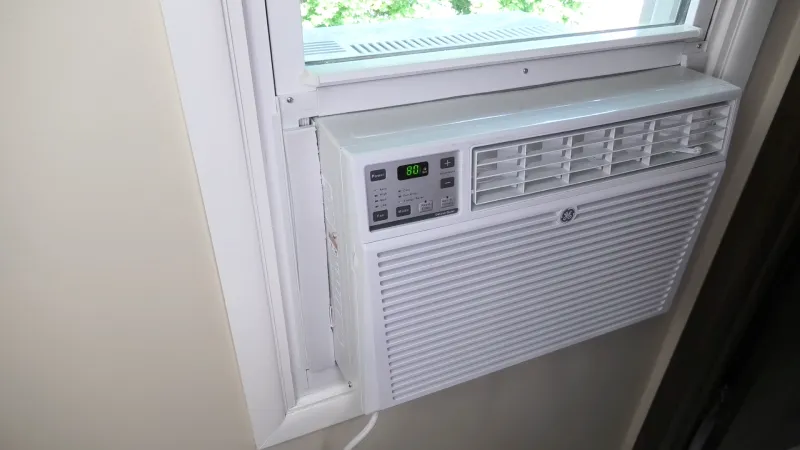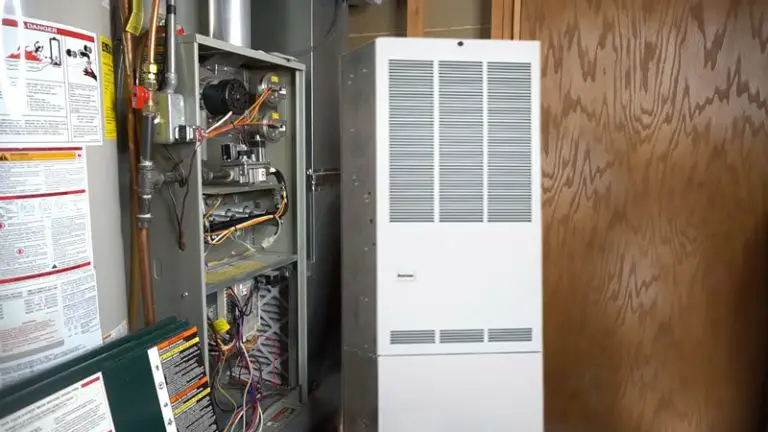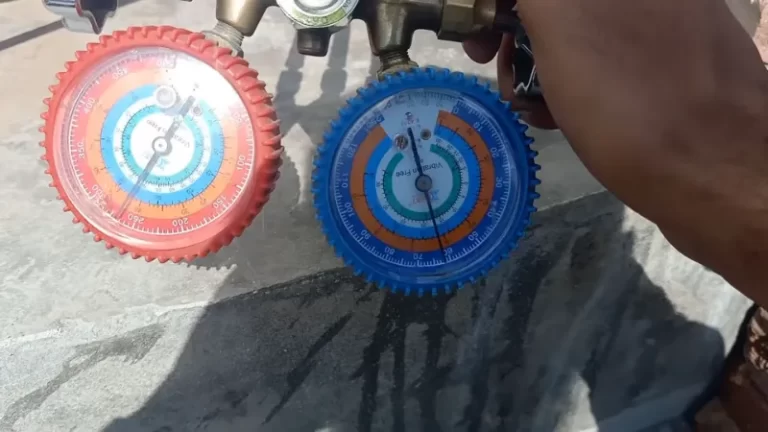Do I Need To Put Water In My Air Conditioner?

The air conditioning system in your home is an important part of keeping your family comfortable during the hot summer months. While many homeowners are familiar with the basics of their air conditioning system, one question that often arises is whether or not you need to put water in your air conditioner.
This article will discuss the answer to this question, as well as any additional information you may need to know.
You'll Learn About
Do I Need to Put Water in My Air Conditioner?
An air conditioner is an electrical appliance that cools the air and removes humidity from a room or building. It is typically used in hot climates to provide relief from the heat and improve air quality.
Does an Air Conditioner Need Water
No, an air conditioner does not need water. Most air conditioners use a refrigerant to cool the air, and this refrigerant does not require water. However, some air conditioners use evaporative cooling, which does require water.
How Does Evaporative Cooling Work
Evaporative cooling works by evaporating water into the air. As the water evaporates, it cools the air, which is then circulated throughout the room or building. The evaporative cooling process requires a reservoir of water, which is usually located inside the air conditioner.
Should I Add Water to My Air Conditioner
If your air conditioner uses evaporative cooling, then you should add water to the reservoir to ensure the air conditioner is working properly. Generally, you should check the reservoir every few weeks and add water as needed.
If your air conditioner does not use evaporative cooling, then you do not need to add water.
What Are the Benefits of Adding Water to My Air Conditioner
Adding water to your air conditioner can help to improve the efficiency of the unit and reduce energy costs. The evaporative cooling process helps to reduce the temperature of the air more quickly and efficiently than other cooling methods.
Additionally, evaporative cooling can help to improve air quality by removing airborne particles, such as dust and pollen, from the air.
What Happens if You Don’t Drain the Water in an Air Conditioner?
If an air conditioner isn’t drained properly, the condensate tank will overflow. This can cause water damage in the home. Unwanted moisture can promote the growth of mold and bacteria. The air conditioner can become inefficient and less effective.
The overflowing water will damage the walls, ceiling, and floor. It can also cause electrical hazards. The air filter can become clogged, restricting airflow. This can cause a buildup of dust, dirt, and other allergens.
The A/C system can become overworked, leading to higher energy bills. It can also cause corrosion and other damage to the unit.
What Happens if Ac Does Not Release Water?
Possible Causes
The primary cause of a malfunctioning air conditioner not releasing water is a blocked drain. This can be due to a buildup of dirt, debris, or other contaminants in the drain line, preventing it from properly draining.
Other causes may include a low-refrigerant level, a faulty condensate pump, or a faulty fan motor.
Warning Signs
Water pooling around the unit, a loud humming noise coming from the unit, and a musty smell in the air are all common warning signs that an air conditioner is not working correctly and may not be releasing water.
Additionally, if the unit is not cooling the home efficiently, this could also be a sign that something is wrong.
Damages
If the air conditioner is not releasing water, it can cause major damages to your home. The most common damage is caused by water leaking from the unit into the walls, ceilings, and floors of your home.
This can lead to mold and mildew growth, as well as structural damage.
Professional Assistance
If your air conditioner is not releasing water, it is important to seek professional assistance immediately. A qualified HVAC technician can inspect the unit and determine the source of the issue and provide an appropriate resolution.
Maintenance
To prevent an air conditioner from not releasing water, regular maintenance and cleaning are important. It is recommended to have an HVAC technician clean the unit at least twice a year and inspect it for any potential issues.
Additionally, changing the air filter regularly can help prevent blockages in the drain line.
Why is My Ac Not Cooling?
Poor cooling of your AC can be caused by clogged air filters. Filters can get clogged with dirt, pet hair, pollen, and dust. Clogged filters can restrict the airflow, preventing your AC from cooling properly.
Refrigerant levels may be low, which can cause cooling problems. Leaks in the refrigerant system can also cause AC cooling issues. A malfunctioning compressor can prevent the AC from cooling effectively.
Dirty condenser coils can also reduce cooling efficiency. Incorrectly sized AC units can lead to poor cooling performance. Blocked or dirty air ducts can reduce airflow and cause cooling problems. Thermostat issues can also prevent your AC from cooling properly.
Why Don’t Air Conditioners Have Drain Holes?
Air conditioners don’t have drain holes because the water from condensation is removed by the fan. The fan throws the water against the condenser, which helps cool the air conditioner. This is more efficient than using a drain hole because the water can be recycled.
By recycling the water, the air conditioner doesn’t need to use additional energy to cool the air. Drain holes are not needed because the fan is powerful enough to do the job. The fan is able to throw the water up to the condenser, cooling it down and making the air conditioner more efficient.
This process helps to reduce energy costs and make the air conditioner more efficient. Additionally, using a fan to remove the water is more cost effective than using a drain hole. By not needing the drain hole, the air conditioner is able to be more compact and lightweight.
In conclusion, air conditioners don’t have drain holes because the fan is powerful enough to do the job of removing water from condensation.
Do All Air Conditioners Have a Drain?
Yes, all air conditioners have a condensate drain line. This drain line is a white PVC pipe and runs from the indoor air handler to outside the home. The drain line is used to safely remove condensate from the home.
Condensate is a by-product of the AC system cooling process. It is usually found near the outdoor condenser unit. It is important to keep the drain line clear of obstructions. This will ensure that the condensate can be safely removed.
If the drain line becomes clogged, the condensate can back up and cause damage to the AC system. It is important to keep the drain line clean and free of debris. Regularly check the drain line for any signs of clogs or blockages.
Can I Drink Ac Water?
Air conditioner water is generally safe to drink. However, it may contain minerals and other impurities. It is also possible for the water to contain bacteria or other contaminants. Therefore, it is not recommended to drink air conditioner water.
It is better to discard the water in a suitable place. If you choose to drink the water, it is advisable to filter it first. Boiling the water is also an effective way to reduce bacteria and other contaminants.
Air conditioner water should not be used for cooking or preparing food. It is best to avoid drinking the water directly from the air conditioner. You should always consult a doctor if you experience any adverse effects after drinking the water.
Where Does Water Come From in Ac?
A home air conditioning system cools air by using a process called evaporative cooling. This process involves the circulation of refrigerant through an evaporator coil. As the refrigerant evaporates in the coil, it absorbs heat from the air passing over it.
This causes the air to become cooler, which is then circulated throughout the house. The evaporator coil also draws moisture from the air, which condenses on the coil. As the refrigerant evaporates, the moisture condenses, forming droplets of water.
These droplets collect at the bottom of the evaporator coil, and then drain away. This is where most of the water from an air conditioner comes from. Other sources of water include leaks in the system, or condensation from the exhaust fan.
This water is collected and drained away, usually through a condensate drain line.
How Do You Put Water in an Air Conditioner?
To put water in an air conditioner, start by turning off the unit. Open the reservoir cap located on the side of the unit. Pour in enough water to reach the fill line. Replace the reservoir cap securely.
Turn on the air conditioner. Make sure the water level is adequate. Monitor the water level periodically. Empty and refill the reservoir as needed. Check for any leaks or clogs. Clean the reservoir if needed.
Why is My Ac Blowing but No Cold Air?
An air conditioner blowing but no cold air could be caused by a variety of issues. The most common causes are dirty air filters and coils, low refrigerant level, or a failing compressor. Air filters should be checked regularly and replaced when necessary to ensure adequate airflow.
Coils should also be cleaned of any dirt and debris that may be impeding airflow. In some cases, the ice that accumulates on the evaporator coils can also block the airflow and cause the AC to blow warm air.
If the air filters and coils are clean, then the next step is to check the refrigerant levels. If the refrigerant is low, then it will need to be refilled to the correct level in order to restore cooling.
Another possibility is a failing compressor which can cause the AC to blow warm air. If the compressor is bad, then it will need to be replaced in order to restore cooling. Lastly, it is possible that the thermostat settings are incorrect which can cause the AC to blow warm air.
To Recap
Most modern air conditioners do not require water to function, as they use refrigerants to cool the air. However, portable or evaporative coolers, also known as swamp coolers, do need water to operate effectively. Always refer to your AC unit’s manual to determine its specific requirements.
While you’re ensuring your AC is functioning properly, it’s a good idea to inspect other parts of your HVAC system. For example, if your Goodman limit switch is faulty, it could cause your furnace to shut off unexpectedly. Similarly, if you’re experiencing Amana freezer problems, addressing them can improve your appliance’s efficiency.


